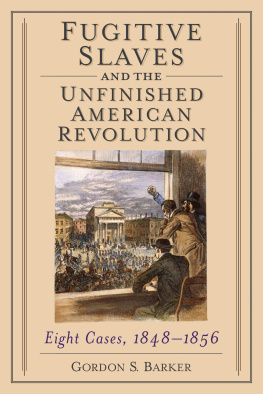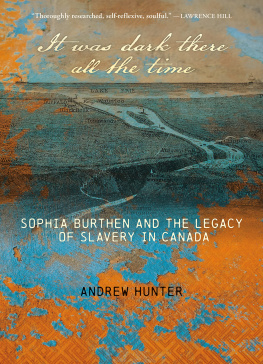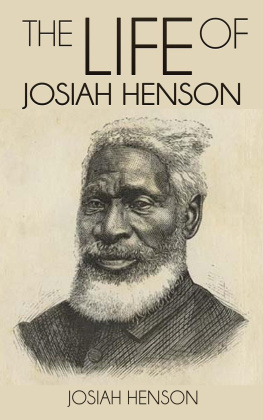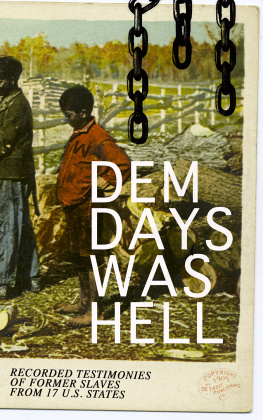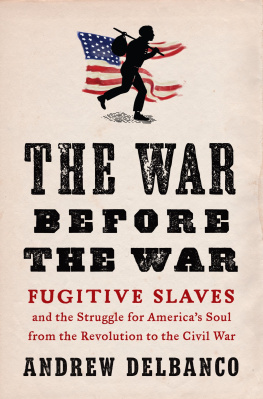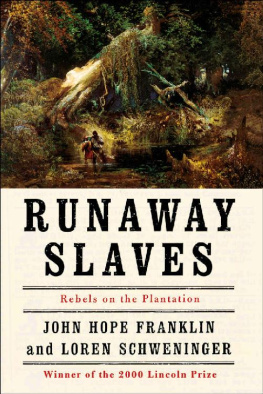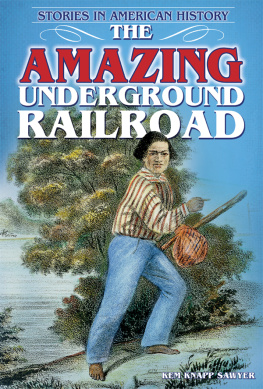VOYAGEUR CLASSICS

BOOKS THAT EXPLORE CANADA
Michael Gnarowski Series Editor
The Dundurn Group presents the Voyageur Classics series, building on the tradition of exploration and rediscovery and bringing forward time-tested writing about the Canadian experience in all its varieties.
This series of original or translated works in the fields of literature, history, politics, and biography has been gathered to enrich and illuminate our understanding of a multi-faceted Canada. Through straightforward, knowledgeable, and reader-friendly introductions the Voyageur Classics series provides context and accessibility while breathing new life into these timeless Canadian masterpieces.
The Voyageur Classics series was designed with the widest possible readership in mind and sees a place for itself with the interested reader as well as in the classroom. Physically attractive and reset in a contemporary format, these books aim at an enlivened and updated sense of Canadas written heritage.
OTHER VOYAGEUR CLASSICS TITLES
The Blue Castle by Lucy Maud Montgomery, introduced by Dr.
Collett Tracey 978-1-55002-666-5
Canadian Exploration Literature: An Anthology, edited and
introduced by Germaine Warkentin 978-1-55002-661-0
The Donnellys by James Reaney, introduced by Alan Filewod
978-1-55002-832-4
Empire and Communications by Harold A. Innis, introduced by
Alexander John Watson 978-1-55002-662-7
The Firebrand: William Lyon Mackenzie and the Rebellion in
Upper Canada by William Kilbourn, introduced by Ronald Stagg
978-1-55002-800-3
In This Poem I Am: Selected Poetry of Robin Skelton, edited and
introduced by Harold Rhenisch 978-1-55002-769-3
The Letters and Journals of Simon Fraser 18061808, edited and
introduced by W. Kaye Lamb, foreword by Michael Gnarowski
978-1-55002-713-6
Maria Chapdelaine: A Tale of French Canada by Louis Hmon,
translated by W.H. Blake, introduction and notes by Michael
Gnarowski 978-1-55002-712-9
Mrs. Simcoes Diary by Elizabeth Posthuma Simcoe, edited and
introduced by Mary Quayle Innis, foreword by Michael Gnarowski
978-1-55002-768-6
Selected Writings by A.J.M. Smith, edited and introduced by Michael
Gnarowski 978-1-55002-665-8
Forthcoming
The Yellow Briar: A Story of the Irish on the Canadian Countryside by
Patrick Slater, introduced by Michael Gnarowski 978-1-55002-848-5
VOYAGEUR CLASSICS

BOOKS THAT EXPLORE CANADA
THE REFUGEE
NARRATIVES OF
FUGITIVE SLAVES IN CANADA
BENJAMIN DREW
INTRODUCTION BY GEORGE ELLIOTT CLARKE

Copyright Dundurn Press Limited, 2008
Introduction by George Elliott Clarke copyright George Elliott Clarke, 2008
Originally published by John P. Jewett & Company in 1856
All rights reserved. No part of this publication may be reproduced, stored in a retrieval system, or transmitted in any form or by any means, electronic, mechanical, photocopying, recording, or otherwise (except for brief passages for purposes of review) without the prior permission of Dundurn Press. Permission to photocopy should be requested from Access Copyright.
Editor: Michael Carroll
Copy-editor: Allison Hirst
Design: April Duffy
Printer: Marquis
Library and Archives Canada Cataloguing in Publication
Drew, Benjamin, 1812-1903.
The refugee, or, the narratives of fugitive slaves in
Canada / Benjamin Drew
Includes bibliographical references.
ISBN 978-1-55002-801-0
1. Fugitive slaves--United States--Biography. 2. Blacks--Canada--Biography. 3. Slavery--United States--History--19th century. 4. Blacks--Canada--History--19th century. 5. Slaves--United States--Social conditions. 6. Underground Railroad. I. Title. II. Title: Narratives of fugitive slaves in Canada.
E450.D77 2008 | 973.71150922 | C2008-900666-6 |
1 2 3 4 5 12 11 10 09 08

We acknowledge the support of the Canada Council for the Arts and the Ontario Arts Council for our publishing program. We also acknowledge the financial support of the Government of Canada through the Book Publishing Industry Development Program and The Association for the Export of Canadian Books, and the Government of Ontario through the Ontario Book Publishers Tax Credit program, and the Ontario Media Development Corporation.
Care has been taken to trace the ownership of copyright material used in this book. The author and the publisher welcome any information enabling them to rectify any references or credits in subsequent editions.
J. Kirk Howard, President
Printed and bound in Canada.
Printed on recycled paper.
www.dundurn.com
Dundurn Press
3 Church Street, Suite 500
Toronto, Ontario, Canada
M5E 1M2
Gazelle Book Services Limited
White Cross Mills
High Town, Lancaster, England
LA1 4XS
Dundurn Press
2250 Military Road
Tonawanda, NY
U.S.A. 14150
CONTENTS
INTRODUCTION
LET US NOW CONSIDER AFRICAN
AMERICAN NARRATIVES AS (AFRICAN-)
CANADIAN LITERATURE
BY GEORGE ELLIOTT CLARKE
Proudly, we Canadians blame the practice of African slavery in North America on two-faced Americans: those who preached hatred for monarchy and love of freedom, but only for citizens touting white skin, male genitals, and a Bible. We believe our schooling that our settler ancestors, because they did not rebel against the British Crown, evolved a superior social order and liberty to that of the violence-prone, if revolutionary, United States. These half-truths still compel our allegiance, thus inspiring a hint of anti-Americanism in our public dialogues and justifying, painlessly, our ignorance about slavery in colonial Canada and about the persistence of racism in our post-modern, multicultural nation.
Ironically, one reason for our collective disavowal of our slave past and racist present is American author Benjamin Drews A North-Side View of Slavery; The Refugee: or The Narratives of Fugitive Slaves in Canada (1856),
If, as Henry Louis Gates, Jr., calculates, The narratives of ex-slaves are, for the literary critic, the very foundation upon which most subsequent Afro-American fictional and non-fictional narrative forms are based (xii), Canadians should consider their centrality to a British imperial and Canadian colonial/ national critique of the ruffian tendencies of the rambunctious Republic. Yet so successfully have we whitewashed our history that we have brainwashed ourselves: we do not notice, even now, the bloodstains and race shadows besmirching our virgin snow. One case in point: the astute critic Richard Almontes sage wager that the slave narrative is a literary genre of the United States (16). Amazingly but in a characteristic Canadian move Almonte alleges that no ex-slaves anywhere outside African America ever scribed their predicament. But this supposition is
Next page


